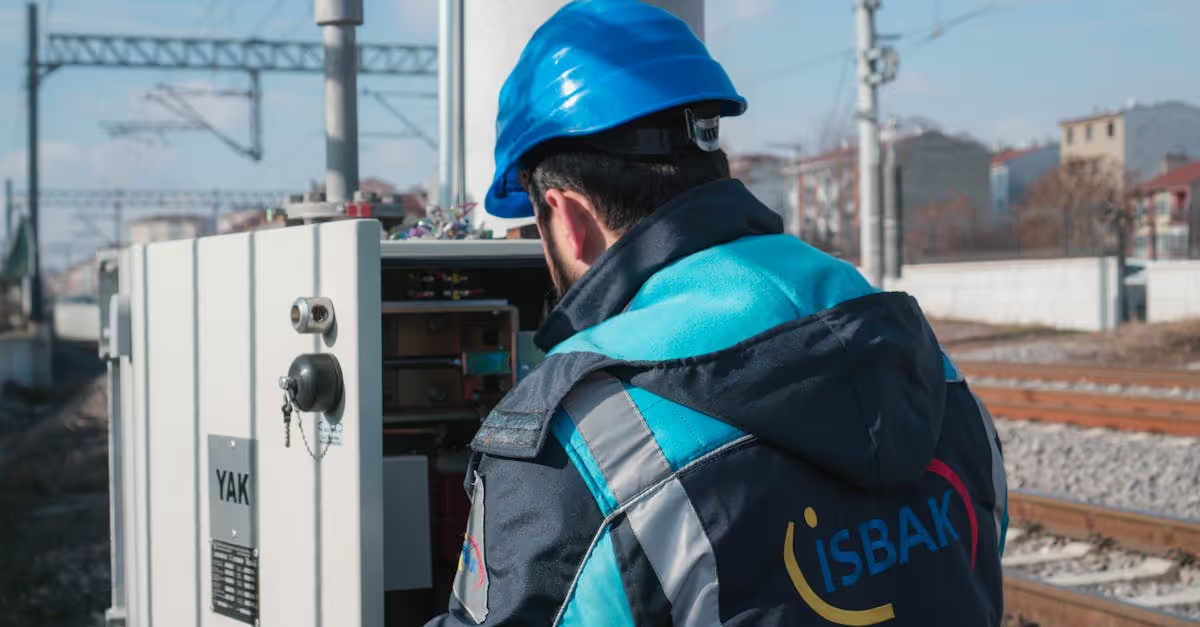Key Takeaways
- Safety First: Annual pool inspections are essential for preventing injuries and ensuring a safe swimming environment for family and friends.
- Cost Savings: Regular inspections can identify minor issues before they escalate into costly repairs, saving you money in the long run.
- Key Areas Assessed: Inspections typically cover structural integrity, pool equipment functionality, water chemistry, and compliance with safety regulations.
- Proactive Approach: Look for signs like frequent repairs and changes in water clarity to determine when a professional inspection is needed.
- Peace of Mind: Knowing your pool meets safety standards and is well-maintained allows for worry-free enjoyment of your outdoor space.
Owning a pool can be a refreshing escape, but did you know that nearly 5,000 pool-related injuries occur each year in the U.S.? That’s why annual pool inspections are crucial for ensuring safety and maintaining the longevity of our investment. These checks not only help us comply with local regulations but also provide peace of mind that our swimming environment is safe for family and friends.
During these inspections, professionals typically assess various areas, including water quality, safety equipment, and structural integrity. By understanding the importance of these evaluations, we can prevent costly repairs and create a secure oasis right in our backyard. Let’s dive deeper into what these inspections entail and why they matter.
Importance of Annual Pool Inspections
Annual pool inspections play a pivotal role in maintaining a safe swimming environment. With nearly 5,000 pool-related injuries occurring yearly in the U.S., these checks are crucial for protecting our families and friends.
Benefits for Pool Safety
Pool safety hinges on regular inspections. Trained professionals check critical components like safety equipment, fencing, and water quality. They assess whether crucial items like life rings and pool covers are in good condition. These measures reduce risks significantly, making our swimming experiences worry-free.
Community members often share stories about near misses involving pool hazards. How many of us have heard a friend recount an incident where improper pool maintenance led to a scare? It's this shared experience that underscores the importance of vigilance.
By prioritizing safety, we pave the way for enjoyable summer days splashing around with loved ones. Who wouldn't want to dive in knowing everything's in top shape?
Cost-Effectiveness of Regular Inspections
Investing in regular inspections can save us money in the long run. Unchecked issues like leaks or structural damage can lead to costly repairs. Annual checks identify small problems before they balloon into major headaches.
Consider this: delaying an inspection could result in a thousand-dollar repair bill after a small crack turns into a serious concern. Isn’t it better to address a leaky skimmer before it leads to extensive damage?
By opting for scheduled inspections, we often utilize technician scheduling tools or service business software, which can boost efficiency and lower costs. Establishing a routine keeps our maintenance budget in check and enhances our pool’s longevity. Who knew that a little foresight could lead to both savings and peace of mind?
Common Areas Covered During Inspections
Annual pool inspections cover several key areas crucial for safety and maintenance. Professionals check multiple components, reducing risks for our families and ensuring an enjoyable swimming experience.
Structural Integrity of the Pool
Inspectors assess the pool's structure, checking for cracks, rust, and signs of wear. These issues can worsen over time, leading to costly repairs. If we let small cracks become problems, it can feel like ignoring a small leak in our roof – it usually leads to bigger issues later. Regular inspections catch these concerns early. A well-maintained pool not only looks better but is also safer for everyone.
Pool Equipment and Accessories
Technicians thoroughly examine pool equipment like pumps, filters, and heaters. Equipment malfunction affects water circulation and cleanliness. Think of it as checking the engine of a car before a long trip – proactive care avoids breakdowns. Pool owners benefit from reliable operations, allowing us to enjoy those summer days without worrying.
Water Chemistry and Quality
Pool inspections involve analyzing water chemistry to maintain proper pH and chlorine levels. Bad water quality can cause skin irritation and other health issues. It's like ensuring our community park’s water fountain is clean and safe for kids to play. Regular checks prevent algae blooms and ensure a sparkling pool, creating an inviting atmosphere for family gatherings.
Safety Measures and Compliance
Inspectors confirm that safety features, such as barriers, alarms, and safety covers, comply with local regulations. These measures protect our loved ones, especially children and pets. Imagine the peace of mind we gain knowing our pool is secure. It’s as if our backyard transforms into a safe haven. Following local guidelines keeps everyone safe and avoids legal troubles, allowing us to focus on enjoying our pool.
Signs That Indicate the Need for an Inspection
Regular pool inspections are essential, and specific signs can signal the need for a professional check-up. Observing these indicators can lead to early intervention, enhancing safety and efficiency.
Frequent Repairs Required
If our pool frequently needs repairs, it's time for an inspection. Constantly replacing broken tiles or fixing leaks can indicate underlying issues. Addressing minor problems early saves us from expensive repairs later. We often think of a pool as a fun escape, but neglected maintenance might turn it into a financial burden. Noticing repeated problems? Let’s reach out to a professional. Staying proactive makes a significant difference.
Changes in Water Clarity or Quality
When water clarity or quality changes, an inspection becomes crucial. Cloudy water or strange odors signal chemical imbalances or contamination. We should regularly check the water's clarity to avoid health risks. It’s like cooking: If we see our soup bubbling over without the right ingredients, we’ve got a recipe for disaster. Instead of shrugging it off, let’s take it seriously. Testing the water regularly and getting help when something seems off can keep our swimming environment safe and enjoyable.
Conclusion
Regular annual pool inspections are crucial for maintaining safety and ensuring a pleasant swimming experience. By proactively addressing potential issues we can protect our loved ones while also preserving our investment. These inspections not only help us comply with local regulations but also enhance the longevity of our pools.
When we prioritize these checks we’re investing in peace of mind knowing that our pool environment is safe and enjoyable. By staying vigilant and scheduling inspections we can catch small problems before they escalate into costly repairs. Let’s make pool safety a top priority and enjoy countless worry-free days splashing around with family and friends.
Frequently Asked Questions
Why are annual pool inspections important?
Annual pool inspections are crucial for ensuring safety, compliance with local regulations, and maintaining the longevity of your pool. They help identify potential hazards, prevent costly repairs, and ensure a safe swimming environment for family and friends.
How often should I have my pool inspected?
It's recommended to have your pool inspected at least once a year. However, if you notice issues like cloudy water or frequent repairs, consider scheduling more frequent inspections.
What do professionals check during pool inspections?
Professionals assess various aspects, including water quality, safety equipment, structural integrity, and compliance with local regulations. This thorough examination helps prevent costly repairs and ensures a safe swimming experience.
What are the signs that indicate the need for a pool inspection?
Look for signs such as frequent repairs, changes in water clarity, broken tiles, unusual odors, or leaks. These may indicate underlying problems that need immediate attention for safety and maintenance.
How can regular inspections save me money?
Regular inspections can identify minor issues before they escalate into major problems. By addressing small concerns early, you can prevent costly repairs and ensure the long-term health of your pool.
What are the benefits of maintaining proper water chemistry?
Maintaining proper water chemistry, including pH and chlorine levels, is vital for preventing health issues and ensuring a safe swimming environment. Regular inspections help monitor and adjust these levels as needed.
How do inspections improve pool safety?
Inspections verify the function of safety measures like fencing and alarms, ensuring they meet regulations. This significantly reduces risks and provides peace of mind for pool owners when their loved ones are swimming.






